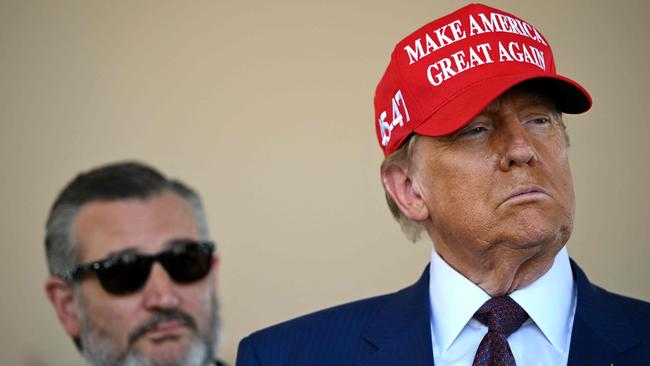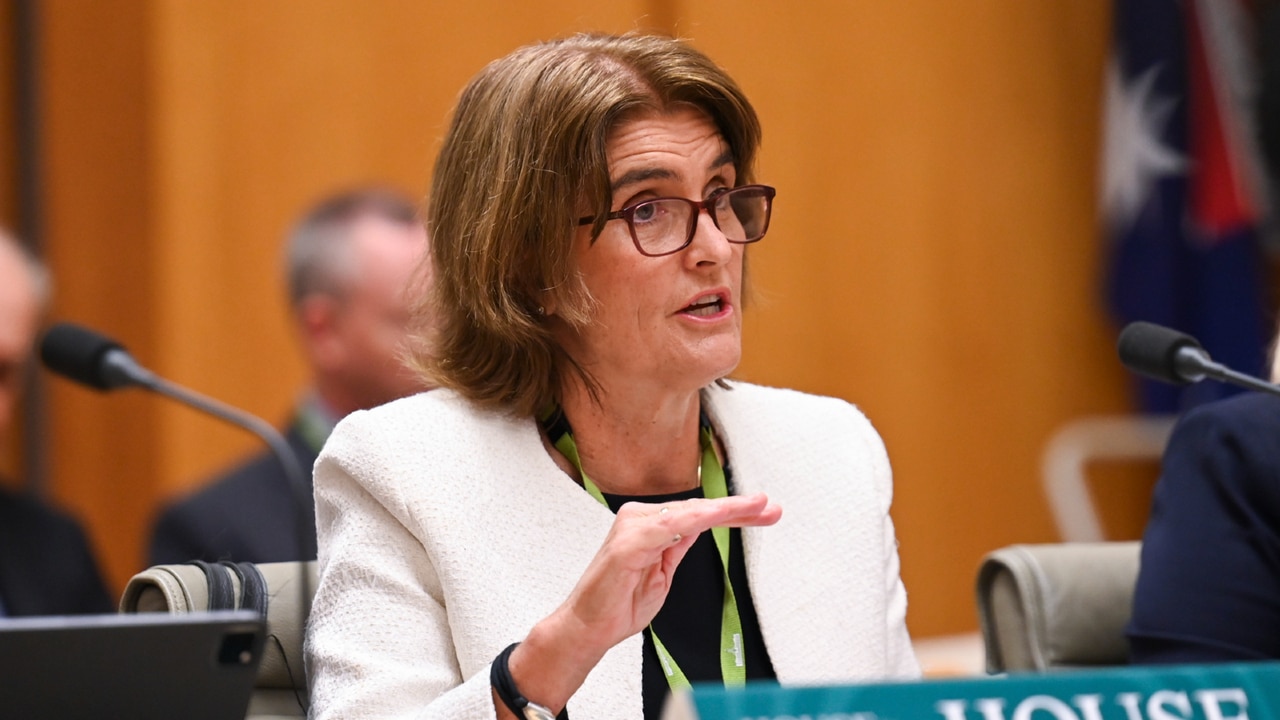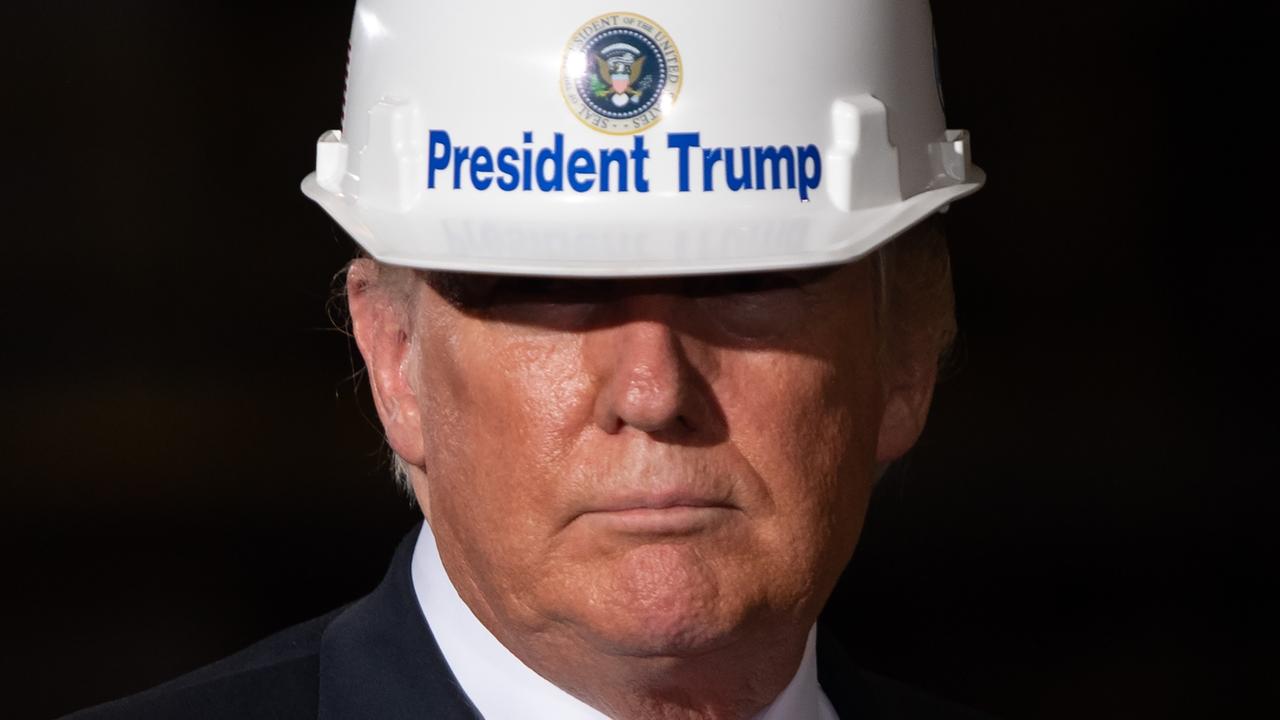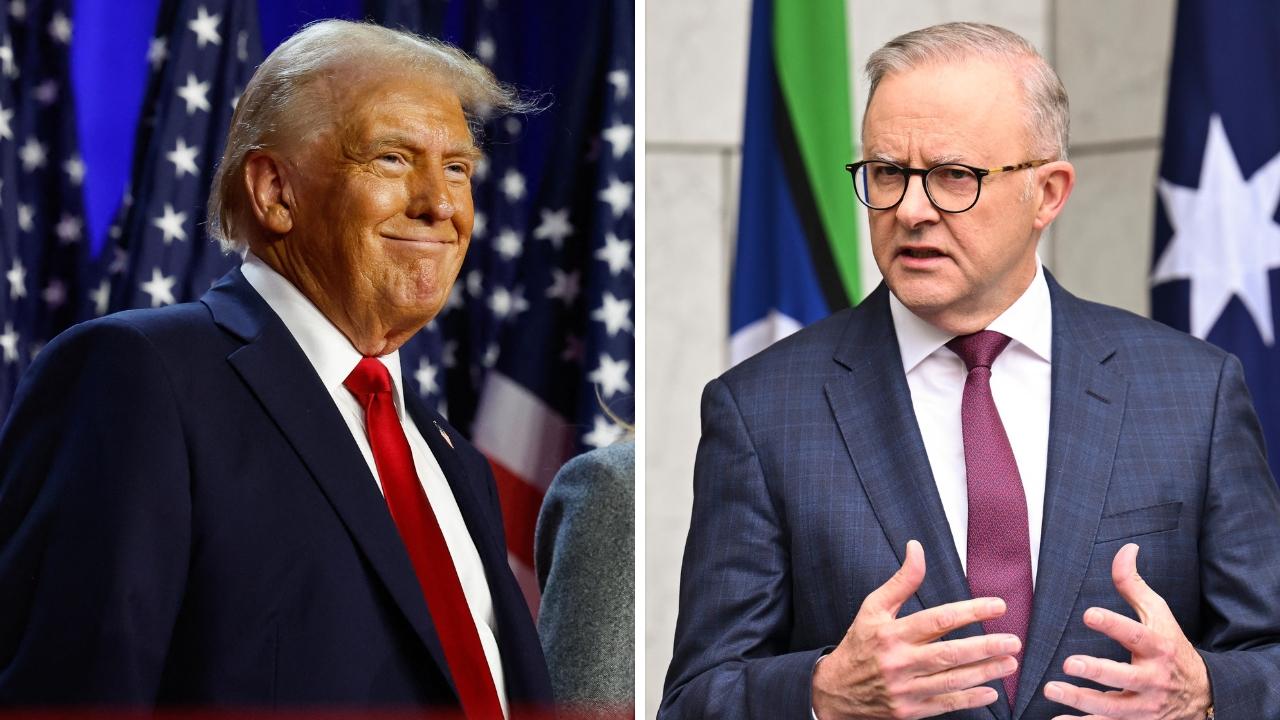How RBA viewed implications of a Donald Trump victory
The Reserve Bank believes Donald Trump’s clean sweep will slow Australia’s economic growth and domestic inflation, driving down interest rates and the value of the Australian dollar.

The Reserve Bank believes Donald Trump’s clean sweep in the US election will slow Australia’s economic growth and domestic inflation, driving down interest rates and the value of the Australian dollar.
Documents released under Freedom of Information laws reveal the RBA’s international department warned in an October 10 meeting that Mr Trump’s promised 60 per cent tariff hike on Chinese imports “will have relatively strong negative implications for Australia given the strength of export trade links”.
“In the extreme scenario, weaker export demand, and slower growth would be disinflationary, putting downward pressure on policy rate expectations, government bond yields and the Australian dollar,” it warned, according to the documents obtained by The Australian. “Equity prices would likely decline as earnings expectations are revised down.”
In a more moderate scenario, the bank said there would be “tension between the better global growth outcomes versus proximity to the still adverse outcomes for China”.
“Overall, we judge that this will still be slightly negative for domestic growth with some modest downward pressure on policy rate expectations and the Australian dollar, but equities and yields could be higher via spillover from the US,“ it said.
Mr Trump’s threatened 10-20 per cent tariff hike on all US trading partners would have less of an impact on Australia than its trade measures against China because Australian exports to the US accounted for only a small portion of GDP, the central bank’s analysts said.
The warning, which predated Mr Trump’s emphatic election win less than a month later, said a “Republican sweep” would have the “greatest implications” for markets, monetary and macroeconomic policy when compared with other potential results.
Mr Trump ultimately achieved such a result, winning majorities in both houses of Congress.
The bank forecast higher inflation and lower growth in the US under an “unrestrained” president Trump, while tipping a “status quo” impact under Democratic Party candidate Kamala Harris.

The analysis underscores the Albanese government’s anxiety over Mr Trump’s election, amid sharp policy differences on trade, climate change and international relations.
RBA governor Michele Bullock has previously provided little indication of the central bank’s view of a looming Trump administration, instead arguing it was too early to assess the impact of the election result on the Australian economy. “We can’t be sort of setting our policy now on expectations of what we think he might do, because we don’t know,” she said this month. “We can’t be jumping at shadows.”
The RBA’s analysis follows similar concerns raised by Treasury. On the day of the election, Treasury boss Steven Kennedy said Mr Trump’s policies threatened to weigh on the local economy.
“A significant increase in tariffs would have implications for both the US economy and, for example, if the tariffs were placed on Chinese goods for China there would be flow-on consequences for Australia,” he told Senate estimates.
The implications of Mr Trump’s economic agenda have divided economists.
Some, including KPMG chief economist Brendan Rynne, have argued domestic inflation could rise due to proposed sweeping tariffs, threatening to increase interest rates.
Others, however, have claimed Mr Trump’s tariffs could create a global supply glut of cheap manufactured goods, leading to lower prices in Australia.
Alongside proposed tariff increases, Mr Trump has also made a flurry of tax-cut promises, including plans to slash the corporate rate to 15 per cent, down from its current level of 21 per cent, while also providing income tax relief for all households.


